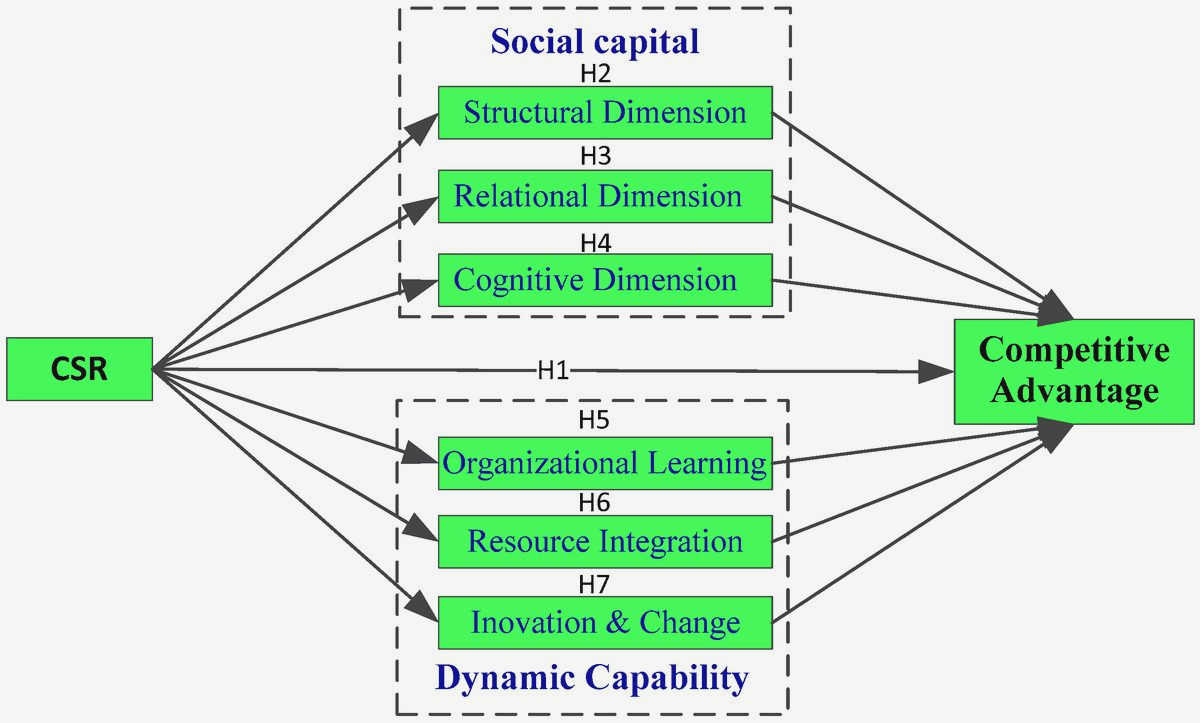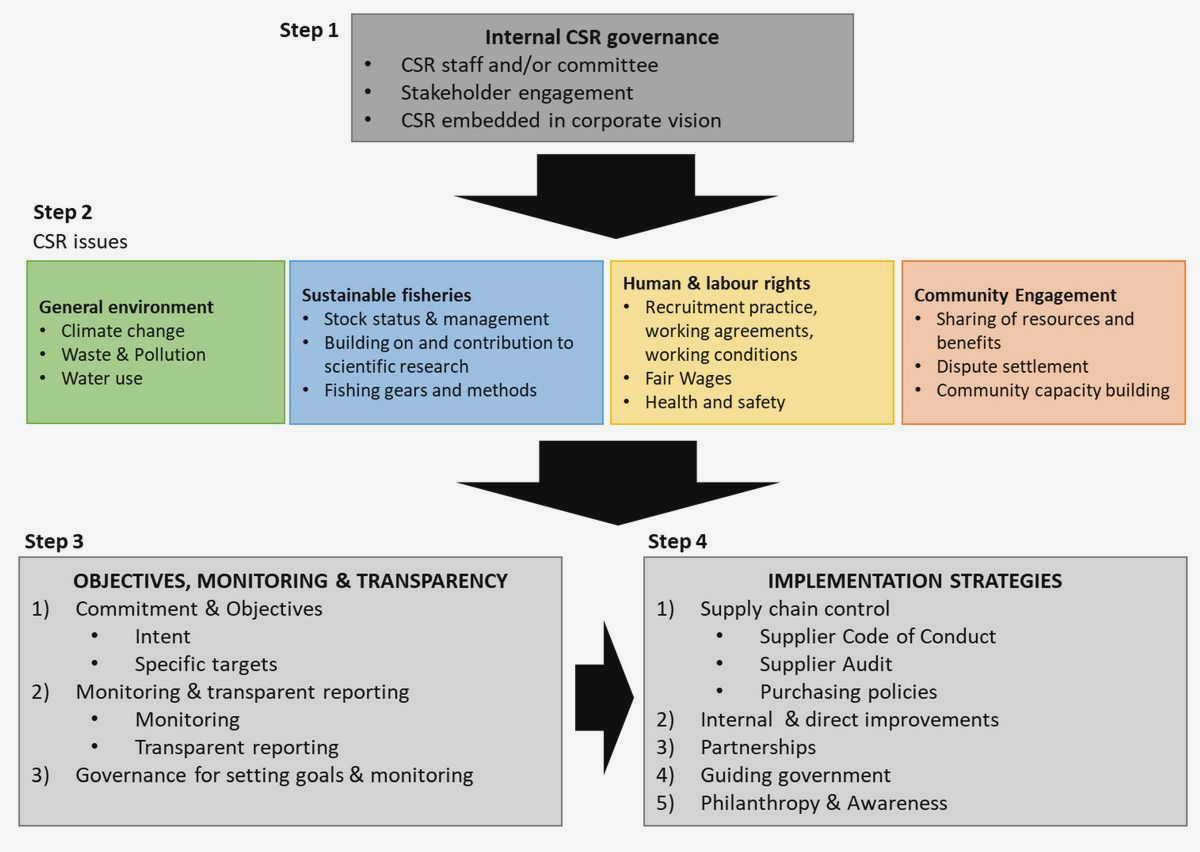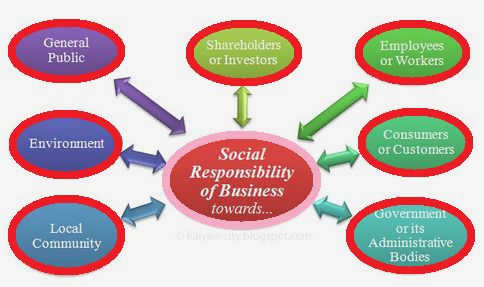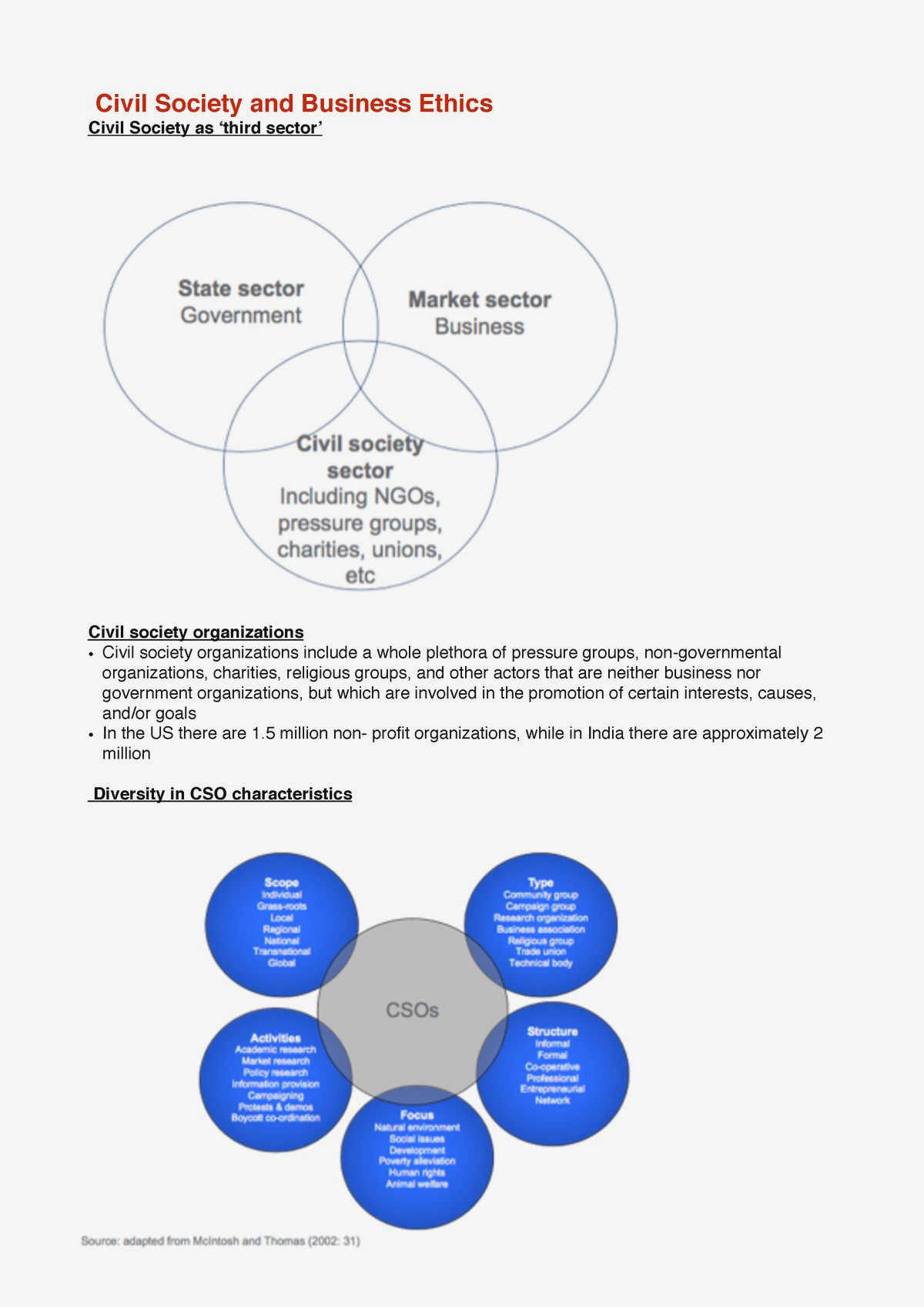In today’s globalized world, civil society organizations play a crucial role in addressing social and environmental challenges. These organizations, which include non-profits, non-governmental organizations, and community groups, rely heavily on funding and public support to carry out their missions. One key factor that can set civil society organizations apart is their commitment to ethical practices and social responsibility.
When civil society organizations prioritize ethics and social responsibility, they not only strengthen their own credibility and reputation, but also attract a wide range of stakeholders, including donors, volunteers, and partners. By demonstrating a genuine commitment to transparency, accountability, and fair treatment of their stakeholders, these organizations can build trust and foster long-term relationships. This, in turn, helps them in securing funding, attracting volunteers, and creating partnerships that are vital for their sustainability and impact.
Moreover, embracing socially responsible practices can also lead to increased organizational efficiency and effectiveness. By integrating ethical principles into their decision-making processes, civil society organizations can ensure that their resources are allocated effectively and that their programs and initiatives are aligned with their mission and values. This focus on ethical decision-making can help these organizations navigate complex challenges, manage risks, and make informed choices that benefit both their stakeholders and the communities they serve.
The Importance of Ethics in Business
Ethics play a crucial role in the success of any business. It involves making decisions based on moral principles and values, even when faced with difficult choices or conflicting interests. By conducting business ethically, organizations can build trust and maintain strong relationships with their stakeholders, including customers, employees, suppliers, and the community.
One of the key benefits of practicing ethics in business is the establishment of a positive reputation. Companies that prioritize ethical behavior are seen as trustworthy and reliable, which can attract loyal customers and enhance their brand image. Consumers today are increasingly conscious about supporting businesses that align with their own values and are more likely to choose ethically responsible companies over those that prioritize profits over social and environmental concerns.

Furthermore, ethical business practices can also improve employee morale and engagement. When employees see that their organization values ethical conduct, they are more likely to feel proud of their work and motivated to contribute to its success. Ethical businesses create a positive work environment where employees feel valued and respected, leading to higher levels of productivity and job satisfaction.
Additionally, practicing ethics in business can help to mitigate risks and avoid legal issues. By following ethical guidelines and regulations, organizations can ensure compliance with laws and regulations, protecting themselves from potential fines, lawsuits, and damage to their reputation. Ethical behavior fosters a culture of transparency and accountability, reducing the likelihood of fraudulent activities or unethical practices within the organization.
In summary, ethics should be a fundamental aspect of any business strategy. By prioritizing ethical practices, organizations can benefit from a positive reputation, loyal customers, engaged employees, and reduced legal risks. Ethical conduct is not only the right thing to do, but it also provides a competitive advantage in today’s socially conscious business landscape.
The Role of Civil Society Organizations in Promoting Ethical Practices
Civil Society Organizations (CSOs) play a crucial role in promoting ethical practices within society and driving positive change. Through their advocacy and actions, CSOs help to establish and maintain high ethical standards, fostering a culture of responsibility and integrity.
1. Educating and raising awareness: CSOs have the ability to educate and raise awareness among individuals, businesses, and governments about the importance of ethical practices. They provide resources, training, and workshops that empower people with the knowledge and skills to make ethical decisions.
2. Holding stakeholders accountable: CSOs act as watchdogs, monitoring the activities of businesses, governments, and other organizations to ensure they adhere to ethical standards. They engage in public advocacy, lobbying, and investigative activities to expose unethical practices and hold responsible parties accountable.
3. Collaborating and fostering partnerships: CSOs facilitate collaboration and partnerships between different stakeholders, including businesses, governments, and communities. By bringing together diverse perspectives and expertise, CSOs can drive collective action towards ethical practices and social responsibility.
4. Advocating for policy changes: CSOs advocate for policy changes that promote ethical practices and address social and environmental issues. They engage in policy research, lobbying, and public campaigns to influence decision-makers and create a regulatory framework that supports sustainability and responsible behavior.
5. Implementing and showcasing best practices: CSOs lead by example through the implementation of ethical practices within their own organizations. They demonstrate the benefits and feasibility of adopting socially responsible practices, inspiring others to follow suit and creating a ripple effect within society.
6. Empowering marginalized communities: CSOs work towards empowering marginalized communities and ensuring their rights are protected. They advocate for equality and social justice, promoting ethical practices that prioritize human rights, dignity, and inclusivity.
The role of CSOs in promoting ethical practices cannot be underestimated. Their collective efforts contribute to the development of a more ethical and sustainable society, where businesses, governments, and individuals are held accountable for their actions and strive towards the common good.
How Socially Responsible Practices Benefit Civil Society Organizations
Civil society organizations (CSOs) play a vital role in bringing about positive change in society and addressing various social and environmental issues. By adopting socially responsible practices, CSOs not only enhance their reputation and build trust with stakeholders, but also reap a wide range of benefits that contribute to their overall success.
1. Enhanced credibility and trust
By implementing socially responsible practices, CSOs demonstrate their commitment to ethical behavior and the well-being of society. This enhances their credibility and builds trust among their stakeholders, including donors, volunteers, and beneficiaries. CSOs that are trusted are more likely to attract funding, partnerships, and support from various stakeholders, which in turn strengthens their capacity to make a positive impact.
2. Improved stakeholder engagement
CSOs that embrace socially responsible practices foster stronger relationships with their stakeholders. They engage in transparent communication, actively involve stakeholders in decision-making processes, and address their concerns and expectations. This inclusive approach creates a sense of ownership and empowerment among stakeholders, leading to enhanced collaboration, shared commitment, and increased participation in CSO activities.
3. Attraction and retention of talent
Adopting socially responsible practices helps CSOs attract and retain talented individuals who are passionate about making a difference in society. Employees are more likely to be motivated and satisfied when working for an organization that aligns with their values and contributes to the greater good. CSOs that prioritize social responsibility are seen as attractive employers, enabling them to recruit and retain top talent, which in turn strengthens the organization’s capabilities and effectiveness.
4. Competitive advantage
CSOs that prioritize social responsibility gain a competitive advantage in the sector. They differentiate themselves from other organizations by emphasizing their ethical practices, social impact, and environmental sustainability initiatives. This can lead to increased funding opportunities, partnerships, and collaborations, as stakeholders are more likely to choose CSOs that are socially responsible and aligned with their values.
5. Long-term sustainability
By integrating socially responsible practices into their operations and strategies, CSOs can contribute to their own long-term sustainability. This includes prudent resource management, responsible governance, and strategic planning that takes into account social, environmental, and economic factors. CSOs that prioritize sustainability are better equipped to weather challenges and adapt to changing circumstances, ensuring their continued ability to make a lasting impact in civil society.
In conclusion, embracing socially responsible practices provides numerous benefits to civil society organizations. From enhanced credibility and trust to improved stakeholder engagement, attraction of talent, competitive advantage, and long-term sustainability, these practices contribute to the overall success and effectiveness of CSOs in addressing societal challenges and promoting positive change.
Building Trust and Reputation through Ethical Business Practices
1. Transparency and Openness
Ethical business practices promote transparency and openness, which are key factors in building trust and reputation. By being transparent about their operations, including their sourcing and manufacturing processes, businesses can demonstrate their commitment to ethical standards and gain the trust of their stakeholders.
2. Fair and Ethical Treatment of Employees
One important aspect of ethical business practices is the fair and ethical treatment of employees. This includes providing fair wages, ensuring safe working conditions, and promoting diversity and equal opportunities. By prioritizing the well-being and rights of their employees, businesses can build a positive reputation and gain the trust of both their employees and the wider community.
3. Social and Environmental Responsibility
In today’s society, consumers are increasingly conscious of the social and environmental impact of their purchasing decisions. By being socially and environmentally responsible, businesses can build trust and reputation among consumers who value ethical practices. This can include initiatives such as reducing waste, supporting local communities, and being environmentally sustainable in their operations.
4. Ethical Supply Chain Management
An ethical supply chain is another important factor in building trust and reputation. By ensuring that their suppliers and partners adhere to ethical standards, businesses can demonstrate their commitment to responsible practices. This can include conducting audits, implementing fair trade policies, and actively working to prevent human rights abuses or environmental harm in their supply chain.
5. Building Strong Relationships with Stakeholders
Building trust and reputation also involves building strong relationships with stakeholders, including customers, employees, suppliers, and the local community. By actively engaging with these stakeholders, businesses can demonstrate their commitment to ethical practices and create a positive perception of their organization. This can be done through regular communication, collaboration on social initiatives, and addressing any concerns or issues promptly and transparently.
Conclusion
Building trust and reputation through ethical business practices is essential for civil society organizations to thrive in today’s socially conscious world. By prioritizing transparency, fairness, social responsibility, ethical supply chain management, and strong stakeholder relationships, these organizations can establish themselves as ethical leaders and gain the trust and support of their stakeholders.
The Impact of Ethical Practices on Stakeholder Relationships
When organizations prioritize ethical practices, it has a significant impact on their relationships with stakeholders. Stakeholders, including employees, customers, investors, and the community, expect organizations to act in an ethical and socially responsible manner. By doing so, organizations are able to build trust, enhance their reputation, and strengthen their relationships with these stakeholders.
Employees: Ethical practices can have a positive effect on the relationship between an organization and its employees. When employees see that their organization prioritizes ethical behavior, they are more likely to feel valued and motivated. This can lead to increased levels of job satisfaction, loyalty, and productivity. Ethical practices, such as providing fair wages, ensuring a safe working environment, and promoting diversity and inclusion, can also attract top talent and help retain skilled employees.
Customers: Ethical practices have a significant impact on customer relationships. Consumers today are becoming increasingly conscious of the ethical and social impact of their purchasing decisions. They are more likely to support and remain loyal to organizations that demonstrate ethical behavior. By prioritizing practices such as transparency, fair trade, and environmentally-friendly operations, organizations can build a strong and loyal customer base.
Investors: Ethical practices can also play a role in attracting and retaining investors. Investors want to be associated with organizations that align with their own ethical values and principles. By demonstrating ethical behavior, organizations can enhance their reputation in the investment community and attract socially responsible investors. This can lead to increased financial support and stability for the organization.
Community: Organizations that prioritize ethical practices also have a positive impact on the communities in which they operate. By engaging in socially responsible initiatives and activities, organizations can contribute to the well-being and development of the community. This can lead to improved relationships with local residents, government entities, and other key stakeholders in the community.
In conclusion, ethical practices have a powerful impact on stakeholder relationships. By demonstrating ethical behavior, organizations can build trust, enhance their reputation, and strengthen their relationships with employees, customers, investors, and the community. This can lead to a range of benefits, including increased loyalty, productivity, customer satisfaction, investor support, and positive community engagement.

Ethical Decision-making in Civil Society Organizations
Civil society organizations play a crucial role in promoting and upholding ethical values in society. With their focus on the common good and addressing social issues, these organizations often encounter ethical dilemmas that require careful decision-making. Ethical decision-making in civil society organizations involves considering the impact of actions on stakeholders and aligning decisions with the organization’s values and mission.
Considering Stakeholder Impact
When making ethical decisions, civil society organizations must consider the impact on various stakeholders. This includes taking into account the needs and interests of beneficiaries, donors, employees, volunteers, and the wider community. By considering the perspectives and concerns of all stakeholders, organizations can make decisions that prioritize the greater good and promote positive social impact.
Aligning with Values and Mission
Ethical decision-making in civil society organizations also involves aligning actions with the organization’s values and mission. This means making choices that are consistent with the organization’s ethical principles and overarching goals. By staying true to their values, organizations can build trust and credibility among stakeholders, which in turn enhances their reputation and effectiveness in addressing social issues.
Open and Transparent Communication
Open and transparent communication is essential for ethical decision-making in civil society organizations. By fostering a culture of honesty and openness, organizations can involve stakeholders in the decision-making process and gain their trust and support. This may include sharing information, soliciting feedback, and being accountable for the outcomes of decisions. Open and transparent communication helps organizations to ensure that decisions are made in the best interest of the community and promote the organization’s ethical standing.
Continuous Evaluation and Improvement
Ethical decision-making in civil society organizations is an ongoing process that requires continuous evaluation and improvement. Organizations must regularly assess the impact and outcomes of their decisions to ensure they align with their values and mission. This involves monitoring and measuring the social impact of actions and making adjustments as necessary. By embracing a culture of learning and improvement, organizations can enhance their ethical decision-making practices and make a greater positive difference in society.
Case Studies: Successful Integration of Ethics in Business
XYZ Corp: Promoting Sustainability in Supply Chain Management
XYZ Corp, a global leader in the manufacturing industry, has successfully integrated ethics in its business practices by promoting sustainability in its supply chain management. The company recognized the importance of responsible sourcing and has implemented a comprehensive program to ensure that its suppliers meet ethical and environmental standards. Through rigorous audits and monitoring, XYZ Corp guarantees that its suppliers adhere to fair labor practices, avoid hazardous substances, and demonstrate environmental responsibility. By taking a proactive approach towards sustainability, XYZ Corp has not only improved its reputation and brand image but has also gained a competitive advantage in the market.
ABC Bank: Ensuring Ethical Investment
ABC Bank, a leading financial institution, has demonstrated a successful integration of ethics in its business by ensuring ethical investment practices. The bank has established strict guidelines and criteria for evaluating investment opportunities, ensuring that potential investments align with ethical principles and do not contribute to harmful industries or activities. ABC Bank actively promotes socially responsible investments, supporting businesses that prioritize environmental sustainability, social justice, and corporate transparency. By prioritizing ethical investment, ABC Bank has attracted a growing number of socially conscious customers who value the bank’s commitment to responsible financial practices.
DEF Foundation: Transparency and Accountability in Nonprofit Sector
DEF Foundation, a prominent nonprofit organization dedicated to social causes, has successfully integrated ethics in its business practices by prioritizing transparency and accountability. The foundation ensures that all financial transactions are recorded accurately and maintains a high level of transparency in its operations. DEF Foundation regularly publishes detailed annual reports, detailing its financial activities and impact, ensuring that donors and stakeholders have access to reliable information. By promoting transparency and accountability, DEF Foundation has gained the trust and support of donors and has been able to attract new partnerships and funding opportunities to further advance its mission.
GHI Retail: Fair Trade Practices for Global Impact
GHI Retail, an international retail chain, has successfully integrated ethics in its business practices by adopting fair trade practices. The company is committed to ensuring fair wages, decent working conditions, and sustainable sourcing for its globally distributed products. GHI Retail actively partners with fair trade organizations and certifications to guarantee that its suppliers adhere to fair labor practices and environmental standards. By prioritizing fair trade, GHI Retail has not only enhanced its brand reputation but has also contributed to the empowerment of marginalized communities and the promotion of social justice on a global scale.
Ethics as a Competitive Advantage in the Marketplace
Building Trust and Reputation
Ethics can serve as a powerful tool for organizations to build trust and establish a positive reputation in the marketplace. When businesses prioritize ethical practices and demonstrate their commitment to social responsibility, consumers and stakeholders are more likely to trust and support them. This trust can translate into increased customer loyalty, positive word-of-mouth marketing, and a competitive edge over unethical competitors.
Attracting and Retaining Talent
Organizations that prioritize ethics are more likely to attract and retain top talent. In today’s competitive job market, many job seekers value an organization’s values and ethical practices as much as salary and benefits. Employees are more likely to feel engaged and motivated when they work for a morally responsible organization, leading to higher levels of productivity and job satisfaction. Additionally, socially responsible practices can contribute to a positive company culture, making it easier to attract and retain employees who align with the organization’s values.
Gaining Customer Loyalty
Customers are increasingly seeking out businesses that prioritize ethics and social responsibility. They want to support organizations that align with their own values and beliefs. By demonstrating a commitment to ethical practices, such as fair labor policies, sustainable sourcing, and philanthropy, organizations can attract and retain loyal customers who are willing to pay a premium for their products or services. This customer loyalty can provide a significant competitive advantage in the marketplace.
Differentiating from Competitors
Ethics can set an organization apart from its competitors. In industries where ethical concerns are prevalent, such as the food industry or fashion industry, organizations that prioritize sustainability, fair trade, and ethical sourcing can differentiate themselves from competitors who prioritize profit over social responsibility. By emphasizing their ethical practices in marketing and branding efforts, organizations can communicate their unique value proposition to consumers and stand out in a crowded market.
Conclusion
Ethics can serve as a powerful competitive advantage in the marketplace. By building trust and reputation, attracting and retaining top talent, gaining customer loyalty, and differentiating from competitors, organizations can position themselves as leaders in their industry. Investing in ethics and social responsibility not only benefits the organization financially but also contributes to a more sustainable and socially conscious marketplace.
Strategies for Implementing and Sustaining Ethical Practices
Create a clear ethical framework
To implement and sustain ethical practices within a civil society organization, it is crucial to establish a clear ethical framework. This framework should outline the values, principles, and guidelines that guide the organization’s decision-making processes. By clearly defining what is considered ethical behavior within the organization, it becomes easier to align actions and decisions with these values.

Lead by example
Leaders within civil society organizations play a crucial role in promoting and sustaining ethical practices. By leading by example and demonstrating ethical behavior themselves, they set the tone for the rest of the organization. It is important for leaders to consistently act in accordance with the ethical framework and values they have established, as their actions have a significant impact on the organization’s culture and practices.
Engage stakeholders
In order to implement and sustain ethical practices, it is important to engage and involve stakeholders in the process. This includes employees, volunteers, donors, partners, and the community at large. By actively seeking input and feedback from stakeholders, organizations can ensure that their ethical practices align with the expectations and needs of those they serve. This engagement also fosters transparency and accountability, as stakeholders can hold the organization accountable for its actions.
Provide ongoing ethics training
Ethical behavior is not inherent; it is a skill that can be developed through education and training. Civil society organizations should provide ongoing ethics training to their employees, volunteers, and board members to ensure that everyone understands the organization’s ethical framework and expectations. This training can cover topics such as conflict of interest, confidentiality, transparency, and decision-making processes. Regularly reinforcing these principles helps to embed ethical practices into the organization’s culture.

Regularly evaluate and review ethical practices
Sustaining ethical practices requires ongoing evaluation and review. Civil society organizations should regularly assess their ethical practices to identify any gaps or areas for improvement. This evaluation can be done through internal audits, surveys, and feedback from stakeholders. By constantly striving to improve and address any issues that arise, organizations can ensure that their ethical practices remain relevant and effective.
Recognize and reward ethical behavior
One effective way to promote and sustain ethical practices is to recognize and reward ethical behavior within the organization. This can be done through formal recognition programs, such as employee of the month awards, or through more informal means, such as public acknowledgment and praise. By celebrating and rewarding ethical behavior, organizations create a positive reinforcement loop that encourages others to follow suit.
Establish a reporting mechanism
To maintain accountability and address any ethical violations that may occur, civil society organizations should establish a reporting mechanism for employees and stakeholders to report suspected unethical behavior. This mechanism should ensure confidentiality and provide protection for those who come forward. By creating a safe and secure way for individuals to report wrongdoing, organizations can address and rectify ethical issues promptly.





